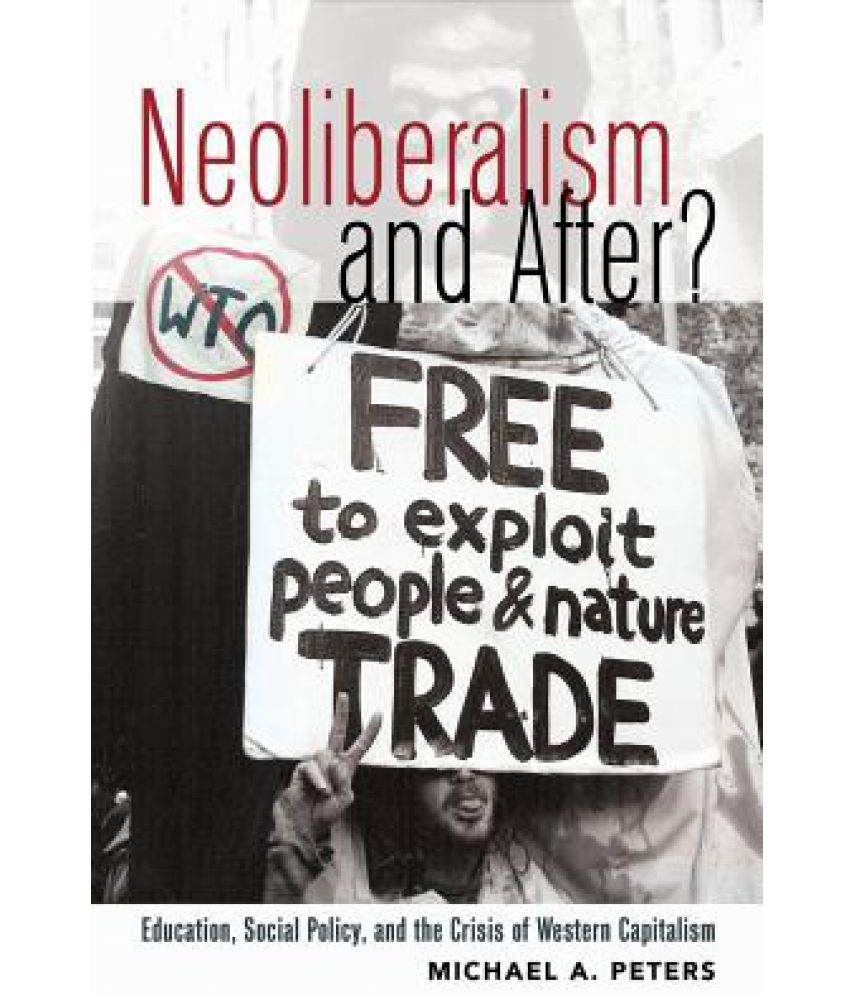Something went wrong. Please refresh the page and try again.
Something went wrong. Please refresh the page and try again.
Notifications can be turned off anytime from settings.
Item(s) Added To cart
Qty.
Something went wrong. Please refresh the page and try again.
Something went wrong. Please refresh the page and try again.
Exchange offer not applicable. New product price is lower than exchange product price
Please check the updated No Cost EMI details on the payment page
Exchange offer is not applicable with this product
Exchange Offer cannot be clubbed with Bajaj Finserv for this product
Product price & seller has been updated as per Bajaj Finserv EMI option
Please apply exchange offer again
Your item has been added to Shortlist.
View AllYour Item has been added to Shopping List
View AllSorry! Neoliberalism and After? is sold out.


You will be notified when this product will be in stock
| ||||||||||||||
Learn More about the Book
The era that began with the election of the Thatcher and Reagan governments has been dominated by contemporary forms of neoliberalism-based market fundamentalism, globalization as world economic integration and the ideology of -free trade, - and an attack on -big- government and social welfare. This book is a historical and theoretical investigation of contemporary neoliberalism in relation to education policy and its rollback of the Keynesian welfare state. It argues that education is the basis of an open society and is a social welfare right in the merging knowledge economy. Drawing on the theoretical lens of Michel Foucault s work on governmentality understood as a form of radical political economy, the book explores and critiques neoliberalism as the ruling ideological consensus. It also questions whether and to what extent its influence will continue, in the face of the destabilization of markets that followed the financial crisis and the global recession that began in 2007, in the advanced liberal economies of the United States and the European Union."
Review Quotes
1. -In this crisp, elegant volume Michael A. Peters dissects the fascinating history of neoliberalism from its roots in the Mont Pelerin Society and German ordoliberalism, and the Chicago and Public Choice schools, to its irradiation through obscure think tanks into the world of public policy. The impact of neoliberal ideas in the second half of the twentieth century was deep going. Peters, in a reflective mood, assays the metaphors and models of the movement, its impact on the university and the public sector, its challenge to academia as a liberal profession, the neoliberal philosophy of individualism and its paradoxical solicitation of managerialism, its pioneering of the economics of information and contemporary knowledge capitalism, and much else besides. Peters' style is urbane, his tenor is summative, and his analysis is crystal sharp. He revisits Foucault's intricate probing of neoliberal schools and explores the post-modern currents that both criticised and celebrated various forms of neoliberalism. He returns repeatedly to the still-extraordinary case of New Zealand that turned on a penny in the 1980s from entrenched welfare state to neoliberal model, and concludes with the prophecies of 'the end of neoliberalism' that accompanied the global financial crisis. In this book, Peters sums up the experiences of a generation that critiqued the neoliberals without ever conquering them. He does this with pithy erudition and a terse command of the intellectual ardours of the past forty years.- (Peter Murphy, Associate Professor of Communications, Monash University)
-Bringing together findings from several decades of observation and analysis, Michael A. Peters' cosmopolitan survey draws on the recent experience of his own country, Aotearoa/New Zealand, to sharply illuminate the impacts in several countries of neoliberal governmentality on public education policies, and their corrosive implications for public culture and social justice.- (Colin Gordon, Royal Brompton & Harefield NHS Trust)
-World recessions are always turning points. In 'Neoliberalism and After?' Michael A. Peters opens to clear-minded scrutiny the main political-economic ideas that evolved after the last world recession, that of the 1930s. Those ideas reached a dead end in 2008-2009. Critical scrutiny is vital if we are to clear away the rubble on the road - left by the wreckage of neoliberalism as both a guide to action and a system of rule - and move forward. This brilliant book demonstrates that in uncertain times, we have continuing resources with which to illuminate the next phase - the critique of liberal political philosophy, Foucault's demolition of control systems, creative cultures in universities and civil society, education as a universal welfare right and a condition of democratic advance.- (Simon Marginson, Centre for the Study of Higher Education, University of Melbourne, Australia)
-One of our leading contemporary social philosophers and educational theorists takes us on a journey across the complex and uneven contours of neoliberalism - a concept that is much used but rarely defined and exemplified so clearly as it is in this book. Peters examines neoliberalism's roots in the foundational ideologies and practices of modernity, tracing multiple lines of development through to its spectacular collapse in the financial contagion of 2008, and its subsequent virulent return. This book is an indispensable context-setting guide for all those with an interest in, and concern for, contemporary social and educational policy.- (William Cope, Research Professor, Department of Educational Policy Studies, College of Education, University of Illinois, Urbana-Champaign)
-There have been many efforts over many decades to promote (or defend) 'neoliberal' institutions and practices as the best basis for"
The images represent actual product though color of the image and product may slightly differ.
Register now to get updates on promotions and
coupons. Or Download App